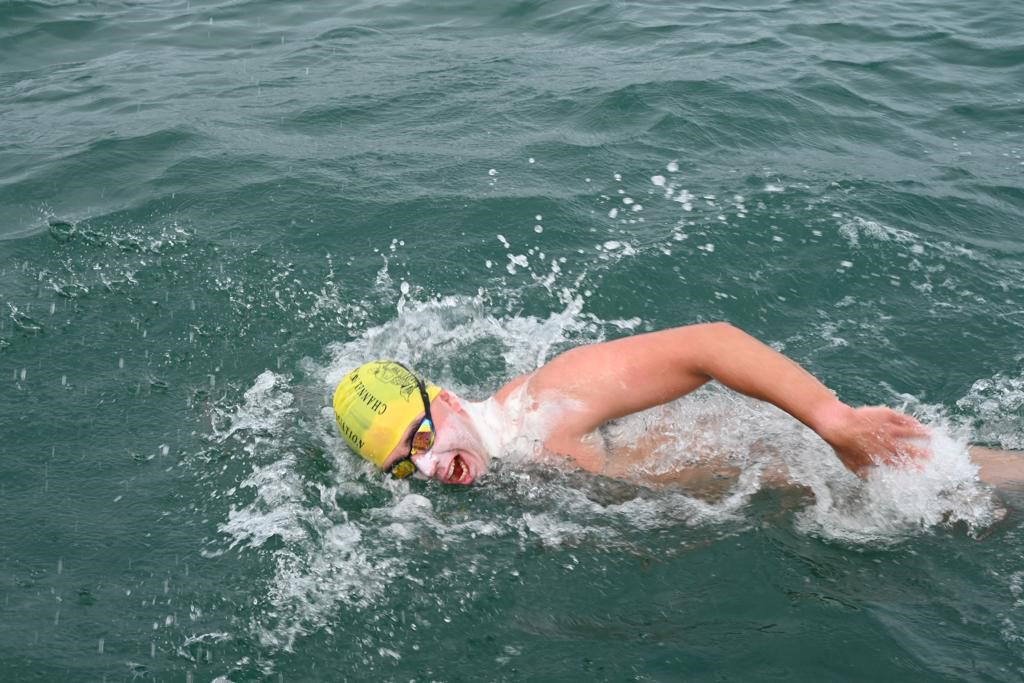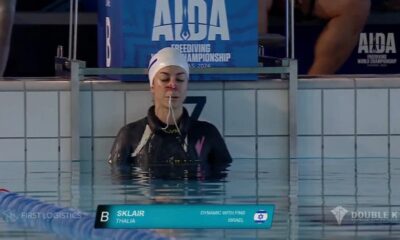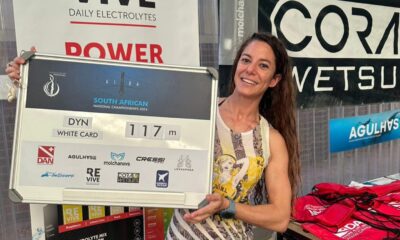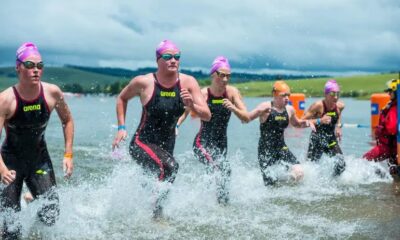
Sport

Tides, tankers, and jellyfish – Jewish athletes conquer the English Channel
What does a Johannesburg recovering drug addict and former professional cage fighter have in common with the Cape Town-raised grandson of Pick n Pay retail giant Raymond Ackerman?
Both Jewish, Troy Mayers, 51, and Joshua Ackerman, 24, last week conquered the mighty English Channel, considered the ultimate long distance swimming challenge – the Everest of open-sea swims.
Two days apart, they ploughed their way through the bitter, icy waters from the beaches of Dover in England to reach their destination on French soil. Hundreds of relatives and friends watched them swim the daunting 32km stretch via livestreaming – on tenterhooks – adding to countless encouraging WhatsApp messages that went around the world.
The pair were among seven South Africans who swam the Channel in the past month. Of these, five succeeded, while two pulled out due to injury and illness.
“It was an amazing, surreal experience followed by an overwhelming sense of achievement,” said an elated Mayers who reached French shores in 12 hours, 17 minutes on 22 August.
“It was epic,” said Ackerman, who battled a ferocious turning tide, swimming in the dark after sunset to arrive in 12 hours 47 minutes on 24 August.
“I was shattered, it took it all out of me,” said Ackerman who was seconded by world renowned endurance swimmer and ocean advocate, Lewis Pugh, who swam alongside him on three separate occasions for an hour at a stretch. Ackerman’s coach, South African Olympic 10km swimmer Michelle Weber last week broke the South African women’s record for the fastest English Channel crossing on the same day as Ackerman took to the seas.
Pugh gave Ackerman three messages in Dover before he set off. “He told me to leave any doubts on the beach in England; to decide that there was only one place I was getting out – and that was France; and that plodders get to France, sprinters don’t,” Ackerman said.
“My first seven hours were perfect, I had a great stroke and tempo, and everything went swimmingly. But after about eight hours, things changed dramatically and it really became quite tough. I had to quicken my pace to try to make the ideal landing position, but I was pushed by the tide and became dazed and confused. I don’t think I would have made it without my support team,” he said.
Ackerman said he focused on his strokes and breathing, and had to dig deep after being swept along the French coast battling choppy waters and a strong current. “Fatigue set in after about nine hours when the tide turned, adding about an hour and a half onto my swim, which I wasn’t expecting,” he said.
Pugh posted on Facebook, “It’s a great lesson for any endeavour in life. Things change. You somehow need to dig deep and keep going.”
“France couldn’t have felt further away in those last few hours, but I was determined to finish,” Ackerman told the SA Jewish Report.
He was supported by his mother, Samantha, and experienced skipper, Debbie Frazer, who were in the support boat sailing alongside him. His father, Jonathan Ackerman, hired a speed boat and together with other family members, sailed out to offer moral support from a distance.
Swimming the Channel isn’t for the faint hearted. It’s one of the busiest shipping lanes in the world, with hundreds of ferries and tankers passing through every day.
“I got stung twice by jelly fish, I think, but you just push through it,” said Ackerman, who also managed to sing 80s rock music in his head to while away the time between feeds, including things like sweet canned peaches, jelly babies, cake, rooibos tea with honey, carbohydrate and protein drinks, to name a few.
For father of two, Mayers, the cold and lonely swim began when a loud foghorn on Shakespeare Beach in Dover signalled the start of his journey. It took gruelling hours alone at sea to hear the same sound at the end, when he reached Cap Gris-Nez beach in France.
“I started out with perfect conditions, but then the wind picked up and my last six hours were rough,” he said.
“I told myself there was nothing I could do but surrender and accept the situation, that it would end, and that I must just keep swimming,” he said.
Mayers said he swallowed a lot of the salty water, which made his mouth and throat raw.
During the long hours at sea, Mayers, a businessman who has been clean for 15 years, thought about his elderly parents who wanted him to succeed as much as he did and why he was there.
“The why is important out there. I was doing it for my family to show them that anything is possible if you put your mind to it. As a recovering addict, I was also doing it for people who are still battling addiction to show them there are success stories and that recovery is a beautiful thing,” he said.
Chocolates, sweets, biscuits, and burgers were waiting for him when he got back to his hotel provided by his supportive girlfriend, Sam Schoub.
In preparation, Mayers was in the Old Edwardian swimming pool most days, swimming for two hours in the morning from 05:00 to 07:00 and then another 4km swim in the afternoon.
He said he did a number of swims in and around Langebaan lagoon, which is known to be the perfect training ground for swimmers looking to train for the English Channel.
He also swam from Durban to Umhlanga, and did two double Robben Island crossings.
Ackerman, who moved to London earlier this year, trained at his gym and also did open-sea swims from Dover to get used to conditions.
Mayers and Ackerman also share the thrill of pushing the boundaries of pain and endurance as ice-water swimmers.
“I have a couple of screws loose,” said Ackerman, who loves “testing his mind and body in a sporting environment”.










